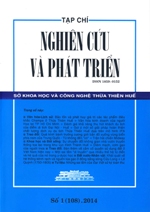Diêm mạch, cơm gạo của người Inca/Quinoa, the rice of the Incas
Tóm tắt
Được mệnh danh là “hột vàng núi Andes”, diêm mạch không phải là ngũ cốc như lúa, bắp mà là một cây thuộc họ Kinh giới Chenopodiaceae như cải đường, rau êpina. Bên các nước Bôlivia, Peru ở Nam Mỹ, nó được trồng làm thực phẩm từ 3.000 năm nay. Người Inca xem nó như là một cây thiêng liêng, gọi là chiyana mama có nghĩa “mẹ của các loài hột”. Hột nấu ăn như gạo và dùng trong nhiều thực đơn. Lá cũng ăn được như rau. Dân quê cho nó là một thức ăn rẻ và bổ ích, gọi là “siêu thực phẩm”, trong khi người thành thị thì chê trong một thời gian dài. Diêm mạch chứa đựng nhiều protein, nhiều hơn các loại hột và rau khác, là một nguồn amin acid, vitamin, chất xơ và photpho, kali, calci, sắt, đồng, kẽm, mangan… Liên Hiệp Quốc tuyên bố năm 2013 là “Năm quốc tế diêm mạch” để tỏ lòng cảm phục dân chúng vùng Andes biết giữ gìn một loài cây quý trồng từ hàng ngàn năm nay, cơ sở thực phẩm của những nền văn minh xưa cổ như văn hóa Inca.
ABSTRACT
Named as “Gold-grain of Andean”, quinoa is not a cereal like rice or maize but a plant of the family of Chenopodiaceae like beeroot or spinach. It was domesticated in South-America, in particular in Bolivia and Peru, around 3,000 years ago. The Incas who held the crop to be sacred referred to quinoa as chisaya mama or ‘’Mother of all grains’’. Quinoa seeds are in general cooked in the same way than rice and can be used in a wide range of dishes. Quinoa leaves are also eaten as a leaf vegetable. People appreciate quinoa seeds for its nutritional value. It is considered as a superfood. Protein content is very high; yet not as high as most beans and legumes. It is a good source of dietary fiber and phosphorus, magnesium, iron, calcium… The United Nations General Assembly declared 2013 as the “International Year of Quinoa” in recognition of the ancestral practices of the Andean people who preserved quinoa during many thousand years.

